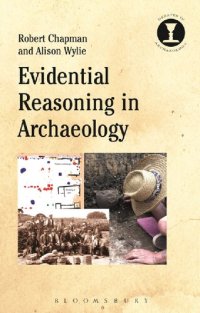
Ebook: Evidential Reasoning in Archaeology
Author: Robert Chapman, Alison Wylie
- Series: Debates in Archaeology
- Year: 2016
- Publisher: Bloomsbury Academic
- Language: English
- pdf
How do archaeologists actually work with the forms of data they identify as a record of the cultural past? How are these data collected and construed as evidence? What is the impact on archaeological practice of new techniques of data recovery and analysis (especially those that originate in the physical and life sciences)?
To answer these questions, the authors identify key examples of evidential reasoning in archaeology that are widely regarded as successful, as pivotal to the development of the field, or as instructive failures, and build nuanced analyses of the forms of reasoning they exemplify. They look at how archaeologists work with old evidence in pursuit of new interpretations, and how they adjudicate conflicting evidential claims based on the same or overlapping bodies of data.
This case-based approach is predicated on a conviction that archaeological practice is a repository of considerable methodological wisdom, embodied in tacit norms and skilled expertise. This wisdom is rarely made explicit, except when contested, and has been largely obscured when high-profile crises are debated. Evidential Reasoning in Archaeology seeks to focus in on it through a set of close-to-ground principles of best practice.
To answer these questions, the authors identify key examples of evidential reasoning in archaeology that are widely regarded as successful, as pivotal to the development of the field, or as instructive failures, and build nuanced analyses of the forms of reasoning they exemplify. They look at how archaeologists work with old evidence in pursuit of new interpretations, and how they adjudicate conflicting evidential claims based on the same or overlapping bodies of data.
This case-based approach is predicated on a conviction that archaeological practice is a repository of considerable methodological wisdom, embodied in tacit norms and skilled expertise. This wisdom is rarely made explicit, except when contested, and has been largely obscured when high-profile crises are debated. Evidential Reasoning in Archaeology seeks to focus in on it through a set of close-to-ground principles of best practice.
Download the book Evidential Reasoning in Archaeology for free or read online
Continue reading on any device:

Last viewed books
Related books
{related-news}
Comments (0)